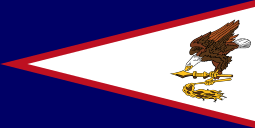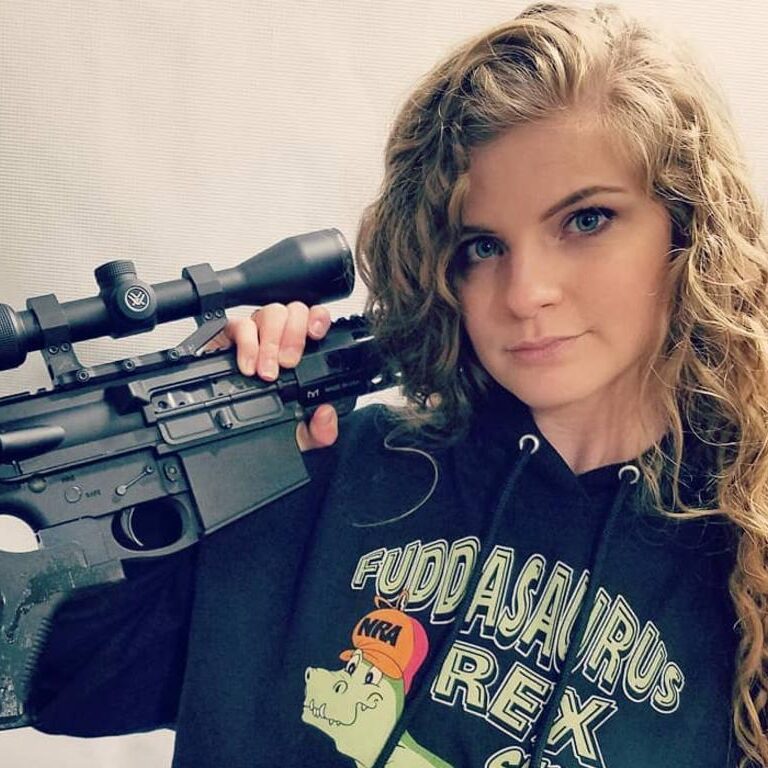Gun Laws in American Samoa: An Overview
American Samoa, an unincorporated territory of the United States located in the South Pacific Ocean, has some of the strictest gun laws in the country. With handguns completely banned and strict limitations on long guns, American Samoa provides an interesting case study of firearms regulation. This article will provide an in-depth look at the current state of gun laws in American Samoa.
Background on Firearms in American Samoa
Before diving into the specifics of the laws, it is helpful to understand the history and context of firearms in American Samoa. As an isolated island community, American Samoa has not had a strong gun culture or history of firearm use. Reasons for this include:
Geography and Isolation
- American Samoa is small and isolated, located about 2,500 miles southwest of Hawaii. This remoteness has contributed to less of a need for guns compared to the mainland United States.
Cultural Norms
- The traditional Samoan way of life centers around an extended family and communal society. This cultural background hasn’t necessitated the same type of individual gun ownership seen in parts of the U.S.
Violent Crime Rates
- Violent crime has been relatively low compared to mainland urban areas. Without rampant crime, firearms for self-defense have not been in high demand.
Native American Samoan vs. Continental U.S. Culture
- As a territory with a Polynesian culture, American Samoa has a markedly different history and cultural norms than the continental United States.
Current American Samoa Gun Laws
With this essential background in mind, what do the current firearms statutes in American Samoa look like in practice? The laws have evolved to become stricter, with the following main components:
Handguns
- Handgun possession completely prohibited – Handguns are banned for civilians under American Samoa law. This applies to any pistols, revolvers, or other concealable firearms.
Long Guns
- License required for purchase – To purchase a long gun (rifle, shotgun), an individual must obtain a firearms license from the Department of Public Safety.
- Registration – Any newly purchased long gun must be registered with authorities. Current registrations must be renewed every 3 years.
- Only shotguns and .22 rimfire allowed – Since 1991, licenses have been restricted to only shotguns (12, 16, 20, and 410 gauge) and low-powered .22 rimfire rifles. Other centerfire rifles are prohibited.
Ammunition
- License for purchase – An individual must have a valid firearms license to purchase shotgun shells or .22 rimfire ammunition. The license specifies the amount allowed.
- Limits on ammunition – Limits are placed on the quantity of ammunition that can be purchased and possessed. Excess ammunition must be surrendered.
Concealed and Open Carry
- No concealed carry – Concealed carry of any firearm is prohibited for civilians in American Samoa.
- Restricted open carry – Open carry is only allowed for specific shotguns or .22 rifles, and only for individuals with a current firearms license.
Machine Guns, Silencers, Explosives
- Banned – Fully automatic weapons, silencers, bombs, grenades, and other military-grade armaments are not permitted for civilian use.
Gun Law History and Evolution
American Samoa’s strict gun climate was not always the case. Firearms laws progressively evolved over the 20th century from a relatively loose system to today’s tight restrictions:
Early Days
- Through the first half of the 1900s – minimal gun laws, ownership common
1960s
- 1968 – The first firearms act passed after the attack on the governor
- Handgun permits and registration required
1970s and 1980s
- Laws progressively tightened
- Ban on machine guns and certain rifles
1991 Weapons Control Act
- Major overhaul restricting long guns to shotguns and rimfire rifles
- Handguns banned for new licenses
This steady progression demonstrates American Samoa’s political stance on limiting civilian gun ownership over time. The reasoning behind this stems from the next section.
Reasoning Behind Strict Laws
The severe restrictions on guns in American Samoa may seem unusual to mainland Americans. However, these laws developed in reaction to specific incidents and cultural factors:
Assassination Attempt on Governor
- In 1968, Governor H. Rex Lee was shot and injured. This catalyzed the first gun control law requiring registration.
Violent Crimes Involving Guns
- High-profile armed robberies and murders in the 70s and 80s led to further tightening.
Isolation and “Paradise” Preservation
- As a tiny isolated island, American Samoa wished to preserve its peaceful paradise character.
Traditional Communal Culture vs. Gun Culture
- Cultural differences from the U.S. meant less public demand for unrestricted guns.
In many ways, American Samoa deliberately set itself apart from mainland gun culture and policies.
Federal vs. Local Control
American Samoa’s relationship with the U.S. federal government also impacts its gun laws:
- As an unincorporated territory, American Samoa has autonomy over local affairs and statutes.
- However, the U.S. Constitution’s 2nd Amendment does not fully apply. Certain federal firearm laws also don’t automatically apply.
This legal gray area allows American Samoa to implement firearms laws that would normally be unconstitutional under typical U.S. case law interpretations of the 2nd Amendment. The territory has taken advantage of restricting guns much further than most U.S. states.
However, American Samoa still has to cooperate with aspects of federal firearms rules. This brings up some interesting legal dilemmas that are still evolving.
Relationship with Federal Gun Laws
American Samoa has an uneasy relationship with the U.S. federal system when it comes to firearms regulation:
Areas of Agreement
- Ban on machine guns, silencers, explosives
- Prohibition of felons having firearms
Points of Contention
- The handgun ban conflicts with the federal right to bear arms
- Traveling through American Samoa with lawful guns
This demonstrates the tensions between American Samoa exercising its autonomy over gun laws while still being beholden to the U.S. on certain issues.
Impact and Effectiveness
Do American Samoa’s strict gun statutes effectively achieve their intended goals of reducing crime and preserving safety? The data shows a mixed impact:
Low Overall Violent Crime Rate
- American Samoa has maintained relatively low rates of serious crimes like homicide and robbery. Strict gun laws likely contribute.
Problems with Illegal Guns and Smuggling
- Black market firearm trafficking remains an issue that laws have been unsuccessful at fully curbing.
Unintended Consequences
- Harsh restrictions have led to issues like illegal makeshift gun manufacturing and defiance of laws.
While American Samoa still boasts low crime compared to the mainland U.S., illegal gun ownership remains problematic despite stringent laws. Like with many policy topics, the real-world impacts are nuanced.
Firearms Decisions by American Samoa High Court
The High Court of American Samoa has weighed in on firearms issues through key rulings:
Upholding Handgun Ban
- In 2007, the court affirmed the government’s right to prohibit handguns under territorial law.
Strengthening Restrictions on Long Guns
- The court has consistently upheld strict registration and licensing rules for shotguns and rimfire rifles.
Supporting Limits on Ammo Purchase
- Judicial rulings have backed American Samoa’s stringent limits on ammunition quantity.
Gun laws in American Samoa for foreigners
American Samoa strictly limits firearm possession and use in its territory. Foreign visitors and non-resident aliens are prohibited from owning or carrying guns in American Samoa. Importing firearms is also illegal without prior approval. The only exception is unloaded firearms brought in for sporting events.
Gun law in American Samoa firms
Businesses in American Samoa face tight restrictions on firearm possession and use. Private entities cannot own or use guns for security purposes. Some narrowly defined exceptions exist such as for banks, but regulations severely constrain commercial firearm activities in the territory.
Comparison to Other U.S. Territories
To provide additional context, it is informative to compare American Samoa with other U.S. island territories:
U.S. Virgin Islands
- Handguns permitted with license; concealed carry allowed
- More aligned with general U.S. gun laws
Guam
- Strong restrictions but handgun ownership is allowed with a license
- Closer to Hawaii’s strict but permissive laws
Puerto Rico
- More autonomy as a commonwealth; handgun possession permitted
- Concealed carry is allowed with stringent permitting
American Samoa
- Only Pacific territory with a handgun ban
- Tightest restrictions of any U.S. territory
This comparison shows that American Samoa is an outlier and unique case among U.S. island territories when it comes to firearms policy.
Recent Challenges and Proposed Changes
Despite the longstanding precedent, American Samoa’s harsh gun laws have still faced challenges in recent years:
Push to Align with Federal Gun Laws
- Some groups argue federal firearms rights should fully apply to American Samoa.
Legal Threats Based on 2nd Amendment
- However, the 2nd Amendment still has questionable applicability in unincorporated territories.
Calls to Allow Handgun Authorization
- Proposals demand a path to legal handgun possession based on U.S. gun ownership rights.
But so far officials have rebuffed these pressure campaigns to relax restrictions. The future legal landscape remains uncertain.
American Samoa Gun Laws: Conclusion
In conclusion, American Samoa maintains strict firearm statutes that sharply diverge from the U.S. norm. A sweeping handgun ban combined with rigorous long gun regulation reflects American Samoa’s priorities of minimizing gun violence and protecting its island character. This distinct approach has persisted despite external pressure and legal uncertainties around America Samoa’s status regarding broader U.S. gun rights. The territory’s experience provides a thought-provoking case study in extreme firearms restriction within the American legal framework.
FAQs;
Q1: Why are handguns banned in American Samoa?
Handguns are completely prohibited for civilian use in American Samoa due to efforts to reduce gun crime and violence. The territory has intentionally diverged from gun culture and laws in the continental United States.
Q2: What guns can you own in American Samoa?
The only legal civilian firearms in American Samoa are 12, 16, 20, and 410 gauge shotguns and low-powered .22 rimfire rifles. All handguns and other centerfire rifles are banned.
Q3: Can you carry a gun in South America?
Laws for carrying guns vary greatly across South American countries. Many countries like Brazil, Argentina, and Colombia largely prohibit carrying firearms by civilians. Others like Uruguay have more permissive concealed carry laws. Transporting guns through nations as a foreigner often requires prior approval and is subject to controls.
Q4: Do gun laws apply in American Samoa?
American Samoa has autonomy over local gun laws as an unincorporated territory. However, some federal gun statutes still apply. This creates legal conflicts between territorial laws and broader U.S. rights.
Q5: Can you conceal carry in American Samoa?
No, concealed carry of any firearm is completely prohibited for civilians under American Samoa statutes. Only extremely restricted open carry is allowed for certain shotguns and rimfire rifles.
Q6: Are machine guns allowed in American Samoa?
Machine guns, submachine guns, automatic rifles, and any other fully automatic firearms are forbidden for civilians in American Samoa under both territorial and federal laws.
Q7: How many guns are in Samoa?
There are no definitive estimates on the total number of firearms in Samoa. Gun ownership and usage in Samoa is much lower than in the nearby United States. Some lawful private ownership for purposes such as home protection or hunting does exist. Overall guns are tightly regulated in Samoa, requiring permits and licenses for ownership with thorough background checks.
Q8: Are guns legal in American Samoa?
Yes, guns are legal in the U.S. territory of American Samoa but are highly regulated under local laws. Gun ownership requires obtaining permits and licenses from the Commissioner of Public Safety. Background checks, safety training courses, and renewals are mandatory. Carrying firearms in public without a permit is generally prohibited. American Samoa strictly regulates the importation and use of all firearms under territorial statutes.


